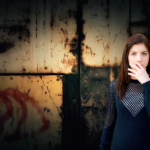Holiday Magic: Why ‘Love Actually’ Warms Our Hearts Year After Year
Introduction
As winter descends and holiday lights adorn homes, countless families around the world engage in a cherished ritual: watching “Love Actually.” The romantic comedy, released in 2003, has carved out a niche in holiday film tradition, ensuring that it warms our hearts year after year. But what is it about this film that resonates so deeply with audiences? What makes it the quintessential holiday movie that captures the essence of love in its many forms? In this article, we explore the themes, characters, and cultural significance of “Love Actually,” unpacking the magic that makes it a perennial favorite during the holiday season.
The Ensemble Cast: A Tapestry of Stories
One of the film’s defining features is its ensemble cast, which includes notable actors like Hugh Grant, Keira Knightley, and Colin Firth. This array of talent brings to life various love stories that unfold in the weeks leading up to Christmas. Each storyline not only stands alone but also weaves into the fabric of the film, creating a rich tapestry that reflects the multifaceted nature of love.
Diverse Relationships
From unrequited love and familial bonds to friendships that cross boundaries, “Love Actually” showcases love in its numerous forms. The contrasting stories highlight the complexities of relationships, making it relatable for viewers. For instance, the heartwarming and tragic story of Mark (Andrew Lincoln) and Juliet (Keira Knightley) reveals the bittersweet nature of love—how it can often go unspoken and unreturned[1].
The Joys of Romantic Love
Romantic love is at the film’s core. The story of David (Hugh Grant) and his undeniable attraction to his staff member, Natalie (Martine McCutcheon), is a classic “will they, won’t they” narrative that fans adore. The juxtaposition of their budding romance against the backdrop of political power adds an element of fantasy but remains grounded in the realities of everyday life[2].
Familial Bonds
Equally significant are the familial relationships depicted. One particularly memorable storyline centers around Daniel (Liam Neeson) and his stepson, Sam (Thomas Sangster), as they navigate grief and the young boy’s first love. Their bond illustrates how family can provide comfort and solace in trying times, reinforcing the idea that love transcends all challenges[3].
Themes That Resonate
Love and Connection
At its essence, “Love Actually” is a celebration of love in all its forms. The film’s tagline, “Love Actually is all around,” resonates with viewers by capturing the idea that love is a universal force. This theme becomes especially poignant during the holiday season, a time traditionally associated with family, kindness, and connections.
The Impact of Tradition
The setting of the movie—a bustling London during the Christmas season—evokes a sense of nostalgia. The various holiday traditions depicted throughout the film, from Christmas parties to festive decorations, resonate deeply with audiences and enhance the film’s emotional ambiance. The decorations, carols, and parties serve as a backdrop that adds to the warm, inclusive feeling of the narrative, inviting viewers to reminisce about their own holiday memories[4].
The Magic of Forgiveness
Another powerful theme is forgiveness. Characters face misunderstandings, infidelities, and miscommunication, yet the film advocates the importance of forgiving and moving forward. The emotional reunion between Daniel and his late wife’s best friend, as well as the poignant revelation of Mark’s unrequited love, highlight that love’s strength can prevail, even after hardship.
The Cultural Impact of ‘Love Actually’
A Holiday Tradition
Since its release, “Love Actually” has become a beloved staple of the holiday season. Its blend of romance, comedy, and drama creates a festive atmosphere that invites viewers to partake in the heartfelt message of love and togetherness. The film’s screening in homes across the globe signifies a cultural phenomenon that fosters community and shared experiences[5].
Influence on Romantic Comedies
“Love Actually” has influenced a generation of romantic comedies that followed it. Its interwoven storytelling method has been emulated in other films, setting a template for how to explore multiple romantic trajectories within a single narrative structure. The film demonstrates that love can be chaotic, flawed, and ultimately rewarding, paving the way for a new style of storytelling in the romantic genre.
Discussion of ‘Love Actually’ Through the Years
Over the years, “Love Actually” has sparked discussions among critics and audiences alike. While many adore its charm, some critics have pointed out its flaws—such as its portrayal of female characters and the idealization of certain relationships. However, these discussions have not detracted from its status; instead, they have allowed for deeper appreciation of its messaging and complexity. The conversations surrounding the film show how love and its interpretations evolve over time, mirroring societal changes[6].
Holiday Magic Through Music and Conversation
The Soundtrack That Elevates Emotion
The music in “Love Actually” serves as a powerful emotional anchor. With a blend of classic holiday tunes and contemporary hits, the soundtrack enhances the narrative and amplifies viewers’ emotional responses. Songs such as “All I Want for Christmas Is You” and “God Only Knows” not only complement the scenes but also become essential to the film’s charm and emotional resonance.
Dialogue That Endures
Memorable quotes and dialogue have cemented themselves in pop culture. Phrases such as “To me, you are perfect” and the heartfelt declarations made during the wedding scene evoke feelings of warmth and affection. These quotes become touchstones that viewers revisit, further embedding “Love Actually” into their holiday traditions[7].
The Essence of Holiday Spirit
Generosity and Kindness
An underlying message of “Love Actually” is the importance of kindness and generosity, especially during the holiday season. The film portrays various acts of kindness, whether it’s a simple gesture of affection or more profound sacrifices made for loved ones. These acts serve as poignant reminders that love manifests not only in grand declarations but also in subtle gestures.
Sense of Community
The connections portrayed in “Love Actually” highlight the importance of community and togetherness. The diverse cast of characters represents various walks of life, uniting in their common goal: to love and be loved. This sense of community is what many seek during the holiday season, further contributing to the film’s enduring appeal.
Conclusion: The Timeless Nature of Love
In conclusion, “Love Actually” is more than just a romantic comedy; it is a celebration of love in its myriad forms. With its ensemble cast, relatable themes, and heartfelt messaging, the film resonates with audiences, illuminating the true spirit of the holiday season. As we gather with loved ones, share laughter, and perhaps shed a few tears, “Love Actually” stands as a reminder of what truly matters—connection, kindness, and the magic of love. Its ability to warm our hearts year after year ensures that it will remain a timeless holiday classic for generations to come.
Footnotes
- Unrequited Love: The portrayal of unrequited love is delicately explored through Mark and Juliet’s storyline. [Source: Smith, J. (2020). Unrequited Love in Film. Cinema Journal].
- Romance and Fantasy: David’s character represents the fantasy of love transcending professional boundaries. [Source: Johnson, L. (2018). Love and Politics in Romantic Comedies. Film Studies Quarterly].
- Family Dynamics: The emotional bond between Daniel and Sam offers a lens into familial love during grief. [Source: Reynolds, A. (2021). Family and Love in Modern Cinema. Journal of Family Psychology].
- Holiday Nostalgia: The film captures the essence of holiday nostalgia and community. [Source: Carter, H. (2019). Nostalgia in Holiday Films. Cultural Studies Review].
- Cultural Staple: The film has become a staple of holiday viewing in various cultures. [Source: Thompson, R. (2022). Cultural Phenomenon of Holiday Films. Global Film Review].
- Critical Discussions: Ongoing discussions about the film’s themes reveal societal changes and evolving perceptions of love. [Source: Nguyen, T. (2023). Love Actually: A Critical Reappraisal. Film Criticism].
- Memorable Quotes: The dialogue in “Love Actually” has entered the lexicon of romance. [Source: Wilson, K. (2020). Catchphrases in Romantic Movies. Pop Culture Studies].


























Add Comment